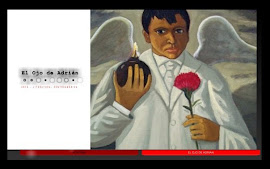Imbalances of obligation
Tom Gatti
ING
Tom Gatti has written articles published in The Times and The Sunday Times. Here, he interviews Margaret Atwood (Canada, 1939), the prolific poet, novelist, literary critic, feminist and activist, winner of the Arthur C. Clarke Award and Prince of Asturias award for Literature. Her latest book, “Payback: Debt and the Shadow Side of Wealth”, offers a timely discussion of debt.
Sitting in a grand 18th-century clubhouse near St James's Park in
In 1984 she wrote a dystopian vision of a fundamentalist society in which women are reduced to the status of child-bearers and servants, forcibly desexualised and veiled – “The Handmaid's Tale” pre-empted the Taleban's misogynist regime in Afghanistan, and the rows over Islamic women's dress and rights in Europe. Another futuristic novel, “Oryx and Crake”, charted the destruction of the Earth by global warming, pandemics and rampant genetic engineering.
Now, in her new nonfiction book, “Payback: Debt and the Shadow Side of Wealth” - a fascinating, freewheeling examination of ideas of debt, balance and revenge in history, society and literature - Atwood has again struck upon our most current anxieties. As the credit crunch grounds airlines and topples banks, nobody can escape the spectre of debt. So where does she keep her crystal ball?
“It was a coincidence,” she claims. “I chose this topic several years ago and then found myself writing the book while all this was happening - the sub-prime mortgage crisis, and these ads plastering the Underground: ‘We will help you with your debt', ‘Why pay more?', ‘Declare personal bankruptcy!'.”
The subject of debt first occurred to her when she was asked to write a public “letter to
Payback is Atwood's contribution to the Massey Lectures - a prestigious annual event that has been hosted by Martin Luther King and J. K. Galbraith - and once the book is published she will tour her native
The
Born in
It is the most famous 19th-century character of all, though, who is the presiding spirit of Payback: Ebenezer Scrooge, the progenitor of Disney's Scottish miser duck. “He's an extreme version of ‘living within your means',” Atwood says. “He does nothing with them except make more means.” In a capitalist society, Scrooge's major sin is that his currency is not “current” - it does not flow. Until, that is, he undergoes his transformation, when he becomes a dual, before-and-after figure. “He fulfils both our wishes: our wish to keep it all to ourselves and our other wish to be kind and generous and for people to like us”. The central chapter of Payback shows how Scrooge is the mirror image of the 16th-century Dr Faustus. Between Marlowe and Dickens, society's view of riches had reversed: for Faustus free-spending is damnation, for Scrooge it's salvation.
For us it's the norm. In the past 50 years we have gone so far down the free-spending route that debt is no longer feared but shruggingly accepted: from student loan to mortgage, everyone's in the red. And while the Victorians had the threat of debtors' prisons, we have the escape route of personal bankruptcy. But as credit becomes scarcer, Atwood thinks that the tide is turning: “Once you get TV shows where people are repenting not that they've cheated on their wife but how in debt they are, then you're returning to a mode in which debt is considered sinful, and thrift is valued. Nobody in the Eighties would have been caught dead in recycled clothing, but now vintage is chic.”
If citizens are relearning the arts of thrift, their governments are lagging behind. The Times Square debt clock in
But financial debt is not our biggest burden. In writing Payback Atwood became fascinated with a phrase spoken of the dead: “He has paid his debt to nature.” “It means you've borrowed something - the physical part of yourself made up of natural elements - and you're paying it back by dissolving into nature. What else are we borrowing from nature and how do we repay it?” The book's final chapter proposes an answer in strong terms.
It's surprising, I say, to see a novelist - whose usual tools are ambiguity and indirection - produce something so close to polemic. Atwood is convinced that the form demands it: “Lecture series like this are secular sermons. You can't just throw a topic like this on to the table without deciding which part of it you think is good and which is bad.”
The bad part is the way we have treated the planet, and at the moment, there isn't much of a good part in sight. “Early cultures would make sacrifices to ensure a good harvest or whatever. If we don't change our ways the sacrifices will be made for us - and that is already going on, what with droughts, famines and floods. Talk to any epidemiologist and what they're really worried about is a mega-plague coming our way. We're overcrowded and malnourished - the same conditions preceded the Black Death.” It's a distressing vision - even more so when you remember Atwood's impressive track record in prognostication.
If mankind could declare bankruptcy and wipe the slate clean, we would. But we can't: instead, Atwood argues, we need to learn to manage our debt, and to pull ourselves back into the black: “We should start thinking of ourselves as elements in the balance, and how we are throwing out the balance. It's not a moral obligation - it's a physical obligation.”








